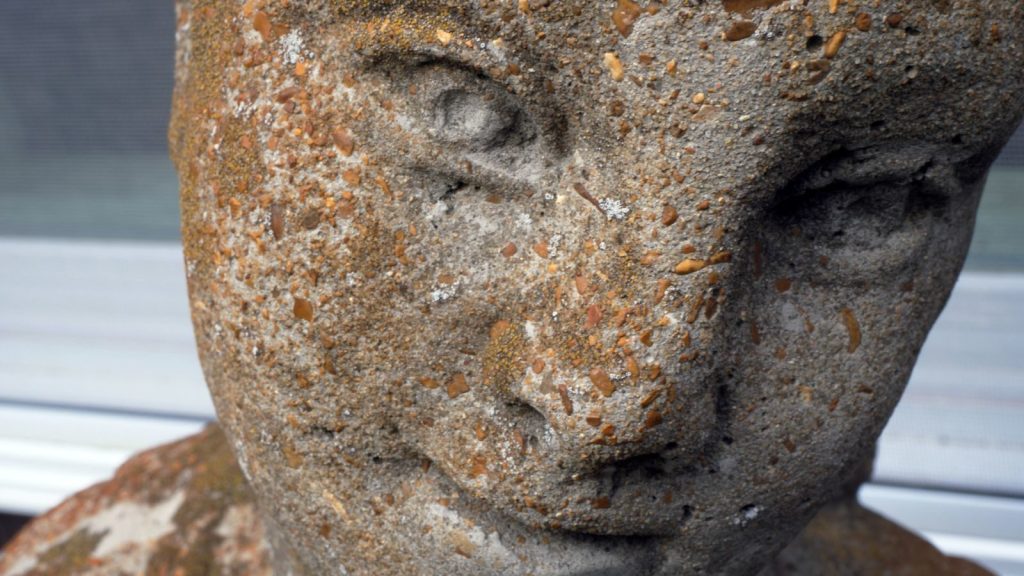
Marginalized people are often used as liberal mascots. As a woman who checks off a lot of diversity boxes, I know this all too well. I have often experienced it regarding my race, but this sort of exploitation is especially notorious regarding disabilities. Due to my partial blindness, I found myself underestimated and tokenized from a young age. In that respect, I have always identified with Helen Keller. I remember watching the 2000 remake of The Miracle Worker in grade school and being deeply moved in a way I didn’t understand until much later. Able-bodied people believe that disability is inherently sad and any ability that we have to be part of “normal society” is a blessing and triumph of the human spirit. But before that assimilation, we’re not there. We live a different life parallel to their own.
When I got a little older, I watched the Jamie Babbit film The Quiet, in which a girl, plagued by trauma, makes the decision to no longer speak. And because the people around her believe her to be disabled, they speak freely to her, sharing their most personal thoughts as if she could never comprehend them. This mirrors the society that Helen Keller was born into, which was, unfortunately, limiting to her and the full extent of her intellect. We know of Keller as the deaf, dumb, and blind child who learned to speak. We know of her simply as a marvel, aided by her loyal teacher Anne Sullivan. It is almost as if she has been cemented into permanent childhood, a wunderkind never allowed to grow or be seen as a woman.
John Gianvito’s new documentary Her Socialist Smile aims to change that image, giving us a full portrait of Keller as a dedicated scholar of socialism. The film chronicles her educational pursuits, beginning with her time at Radcliffe and spanning the rest of her life. Every step of her awakening is fascinating in its defiance of every norm afforded to her. There she was, a woman of means, from a respected American Southern family, openly embracing the ideology of those considered most un-American. But what struck me the most about the film, is the way that the people who once exalted her intelligence, were quick to diminish her “miracles” once they were used to learn beyond what was expected of her.
The film is told mainly in quotes from Keller herself, displayed with white text on a Black screen. These quotes are bolstered by the occasional Q&A exchange, where Keller uses her intelligence and wit to hold fast in her beliefs under news media scrutiny. And then there are the serene images of the forest and nature, Keller’s favorite place to be. These touches make us feel as if we are reading the pages of her diary, moving through her mind quietly, only observing. The film rightly positions the media as foolish for underestimating such a brilliant mind speaking truth to power.
This caustic dynamic between Keller and the media mirrors the overall American attitude toward marginalized people who reject capitalism as dogma. We go from being seen as underdogs to spoiled children, lazing about reading Marx while other more hard-working Americans deal with “real problems” that go beyond the theoretical. To them, to be capitalist is to be realistic, while socialism is seen as a fairy tale or the stubborn remains of a failed political experiment. But those, like Keller and myself, know that it is capitalism that is the failure. Keller would know that better than any able-bodied person because it is capitalism that lead to her being underestimated in the first place.
Under a capitalist system, people with disabilities will always be seen as second-class citizens, simply because our physical limitations require the kind of treatment and consideration that cannot be reconciled with everyday capitalist exploitation. Our accommodations are seen as special treatment and therefore we must live a life of gratitude. Keller’s fall in public opinion correlates with her refusal to mistake the treatment and tutelage that every person deserves as a privilege only for people of means. Keller did what was right–she discovered her voice and used it in service of the most exploited populations. And in doing so, acted with courage very few people can replicate.
Wow, fascinating insight into the view of the world of our human brothers and sisters that I could never have seen from my perspective. I love being pulled ( or pushed) off my comfortable footing to see things from a different place. Capitalism is only a problem for those of us who aren’t powerful, privileged, gifted with opportunity or who for whatever reason at some point in their life or all their life need others. Your revelation of how our “white knights” saving those in need actually have conditions for this help. My mind is racing backward to adjust so many things.
LikeLike
What a marvelous article, so perfectly phrased. Thank you.
LikeLike